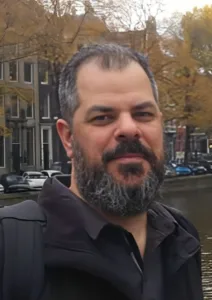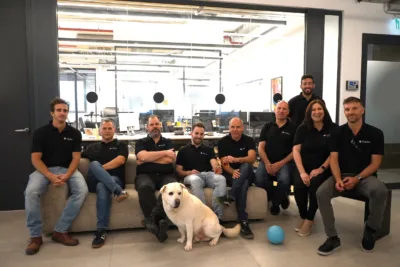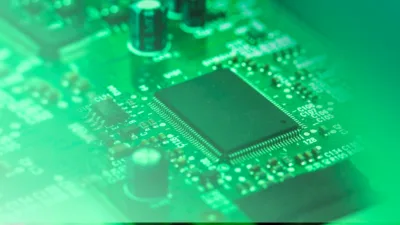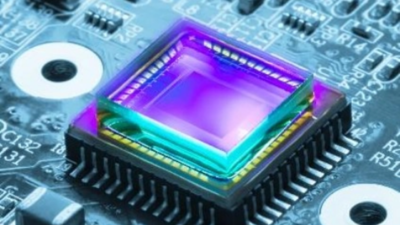Biogas, produced from organic waste, is supposed to be an ideal substitute for polluting fuels, except that it requires an expensive and complex purification process. Clairion has developed innovative technology for rapid, cost-effective, and efficient purification of biogas, opening the door to a massive market estimated at tens of billions of dollars annually
Climate change and global warming have been widely acknowledged for years, and it is a process that is intensifying. Experts believe that the long-term solution to this global issue is to encourage the transition to renewable energy, which is derived from harnessing non-depletable sources such as solar, wind, biomass (biofuel), and others that are not fossil fuels. Biogas is one possible solution, which is a type of “biofuel” produced from various organic waste sources such as municipal waste, sewage sludge, landfill gas, agricultural waste, food industry waste, and more.
Dr. Noam Perlmuter, CEO of the Israeli company Clairion, explains that “biogas is produced by the decomposition of organic waste in an anaerobic process. In this process, bacteria break down the organic waste and produce biogas and organic fertilizers. The fertilizers are used in agriculture and in some places as an energy source, while biogas can be used locally for heating and electricity generation or cleaned of all pollutants to produce biomethane (‘renewable methane’), allowing it to be fed into the gas grid, the natural gas distribution system”.
“The biogas market is very large – it is currently estimated at $60 to $80 billion annually and is expected to exceed $110 billion by 2028, with a growth of about 10% per year,” adds Perlmuter. “However, there is a significant problem before using biogas, it must be cleaned, which is already a complex and very expensive process, challenging and reducing the economic viability of biogas production.”
Biogas typically consists of about 60% methane and 40% carbon dioxide, along with water vapor and impurities such as hydrogen sulfide (H2S) and siloxanes. The presence of these compounds can cause extensive corrosion and wear in generators and transportation equipment, leading to increased
operational and maintenance costs and potential equipment damage. Upgrading biogas to biomethane also requires additional treatment stages and much higher cleanliness levels, making the process even more complex and expensive.
Current conventional cleaning processes typically involve two or three stages. Each stage removes a different pollutant from the biogas. The process requires large, expensive, and very cumbersome systems to set up. Operational costs are very high, and if that’s not enough, its effectiveness in removing impurities like H2S is limited. The issue is particularly challenging because the market is decentralized, and the production of biogas occurs in relatively small facilities. In addition to the high costs of production, economic feasibility is also impacted, which is a significant obstacle to the growth of biogas utilization.

Perlmuter Noam, CEO
Clairion’s unique patent cleans pollutants from biogas at significantly lower costs.
Here enters Clairion into the picture – established based on a unique patented technology, “Fluid Catalytic Liquids Technology,” developed at the Hebrew University – in the Environmental Chemistry laboratories of Prof. Yoel Sasson. The company’s Leading product, SULKANTM, is based on this technology. SULKANTM biogas cleaning system is unique in that it allows the removal of pollutants (hydrogen sulfide and siloxanes) in one stage and with exceptionally high efficiency, exceeding 99%. The system’s footprint is minor, compared to competing systems, and the OPEX is 50% to 70% lower than standard systems in the market.
Dr. Zach Barnea, founder, and CTO of Clairion, explains that “procedurally, the system is based on a wet scrubber (SULKAN). The contaminated biogas enters the system from the bottom and exits clean from the top”. Inside the scrubber, the “magic” happens, as the catalytic liquid developed by the company is circulated in a closed loop. The liquid is capable of absorbing pollutants from the biogas stream and efficiently breaking them down into harmless compounds. Dr. Barnea adds “Afterwards, the pollutants are separated from the liquid in a specialized unit. The liquid then undergoes reactivation before being returned to the operation. The high efficiency of the whole process is due to the catalytic liquid’s unique composition and properties and its ability to be customized for specific surface conditions.”
Dr. Perlmuter points out that “The SULKANTM system is unique in that it significantly reduces environmental footprint as well. Unlike existing methods today, which generate a large amount of waste, in our process – the amount of waste is negligible, and there is no unnecessary resource waste whatsoever.”

Clairion staff
What is the demand that you expect for your system?
“We’ve already started sales both domestically and internationally, and it is safe to say that we are capitalizing on the current opportunity, says Dr. Perlmuter. “In the US, Europe, and other countries worldwide, significant incentives are now being promoted for the transition to green energy sources, like biogas, such as the EU’s RePowerEU program and the Net-Zero 2050 plan. Events like the war between Russia and Ukraine, which greatly affected the European gas supply and raised concerns about heating homes in winter, only expedited the process.”More and more countries today understand that green alternatives to fossil fuels not only reduce greenhouse gas emissions but also help build a better and greener future for our planet, its inhabitants, and its vegetation.”
Clairion, as mentioned, was founded based on technology developed at the Hebrew University, at the Casali Institute of Applied Chemistry. The company began its journey in a Cleantech incubator, securing grants from the Israeli Innovation Authority and being supported by investors led by Marius Nacht, one of Israel’s leading figures in serial entrepreneurship, founding technology companies and investing in hi-tech. The company’s chairman is Ophir Shoham, former head of IDF’s R&D Directorate and leading the high-tech investments of Marius Nacht. These days, the company is selling systems and forging partnerships with companies in Israel, Europe, and the USA, and is in a process of a fundraising round. The company expects significant growth in sales in the coming years.
CEO Perlmuter has over 20 years of experience in managing companies and implementing innovative technologies in the industry. With a PhD in biochemistry from Tel Aviv University, he has held various roles within the global water filtration industry.

Further details: www.clairion.com




